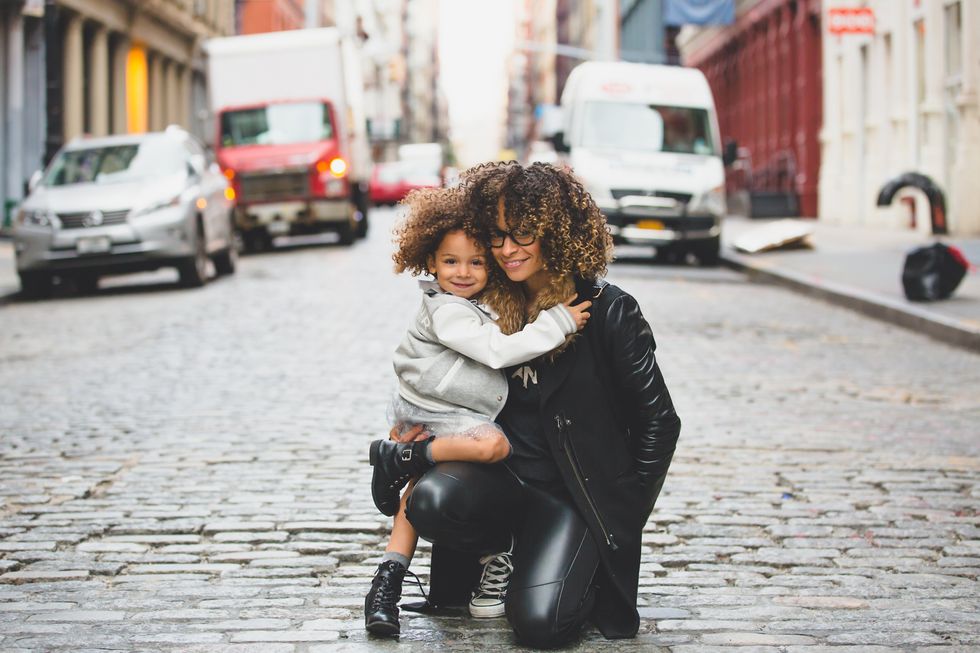Recently, I wrote a piece on the many common misconceptions people have about India and what it feels like to be there. And while it was fun answering some random questions about the best and worst parts of India's day-to-day activities, I couldn't help but feel this pressing feeling that I had to delve more into who I was as both an American and an Indian. I mean, ending the piece saying that there was difficulty in juggling the two hemispheres' culture couldn't nearly be enough explanation for how I led my life. So if you're wondering, there are quite a few things about being a first-born American that make it difficult to form a strong cultural identity.
Eating is completely different in the two cultures.
Curry is obviously a staple Indian food across the country, but the way people eat is so contrasting that it's shocking. In India, people eat mainly with their hands because there's no need for utensils. I've also heard that people in India say that eating with one's hands "makes the food taste better", but that's probably more of something to debate. When I eat Indian food in a restaurant or even at home, it's funny how I can never decide how to actually eat.
Beauty standards are entirely flipped between the two.

In America, there's recently been more emphasis on diversity, though a lot of beauty standards also center around thinner-looking bodies that are still curved in the right areas. In India, on the other hand, "true" beauty is seen in people who have whiter skin. Both societies' beauty standards are horrible in their own ways, though, and they're stressed to people across the board, regardless of gender or age.
SEE ALSO: Being An Indian-American Means You're Breaking One Or Both Societies' Beauty Standards
Everyday clothing is nothing alike when comparing them.
I remember mentioning this once or twice before on Odyssey, but there are drastic differences in what people normally wear outside. In America, it's completely casual and characterized by t-shirts, jeans and other mundane clothing items. In India, "casual" means dressing up in bright colors, clean fabrics and fancier outfits that are striking to the eye. At the same time, people also dress according to Western society standards.
Religious beliefs can collide with Western ideas.
I find this to be a tougher topic to touch on because there are so many fine lines between Hindu beliefs and Western beliefs. There are cases where both ideologies will agree on a subject and cases where the two drastically differ, but in the latter situation, as someone caught halfway between the two, it's so pressuring to make up my mind. I'll find myself stuck because I can't betray either side by choosing the other.
Western social activities can be seen as controversial in India.
This is a pretty well-known fact, but India and America both frown upon some of the things the other country does. While Indians find it commonplace to have arranged marriages, Americans can find that to be violating personal free will and the ability to love anyone they want. Same goes for the opposite. While Americans find PDA to be normal, Indians consider it taboo.
Language barriers with family members are painful to move around.
I hate when this happens because I genuinely want to talk to my family normally, but because they aren't as fluent in English just as I am not fluent in any other language they speak in, I find myself using hand gestures to convey the majority of my thoughts. It makes me feel horrible that I'm not as dedicated to my Indian side as I am to being an American.
Older generations will expect different things than Western beliefs will.

This is probably why Asians in general are stuck with the stereotype of having strict parents who tell them that they can only get A's or "be sent out of the house." But it's not entirely wrong, if wrong at all. My parents aren't those stereotypical "helicopter parents" who expect only the best or nothing at all; they understand that I'm just a human and need some room for mistakes to learn how to get better, but they know where my strengths lie, too. As a result, they do expect a decent amount of work from me, all as a way to teach me that to get far in life, I have to be willing to fight for it.
Personal priorities can get confusing and overwhelming.
Again, this goes back to balancing the cultural views I side with. Sometimes, I'm not the only person trying to decide which hemisphere's culture I should listen to. Someone else could be there with me, coaxing me to follow a custom that I don't particularly support. I get overwhelmed at times by the complete chaos resulting from two completely unique worlds that honestly want nothing to do with each other. Acting as that bridge between the two can get so tiring.
Self-expression is so different in America and India.
Another controversial topic, but it needs to be said. Self-expression in America is more important now than ever, and it's quickly becoming an immensely-popular argument in favor of self-love. I find that in India, there are set standards for how one should look and act, regardless of how they want to express themselves. This is one of those things that I have to become confident in my own views on because should I betray my Indian heritage or embrace my American spirit?
Appreciating Indian culture and normal life can be difficult.
As a result of some of the more conservative, cookie-cutter standards there are in Indian life, I don't find myself siding with a lot of what Indian culture stands for. Arranged marriages? Yes, they can arguably be seen as more successful in the long run, but every marriage is different. Justifying prejudice through religion? That's also seen a lot in America, but I will never find myself agreeing with this stance. There are just a few particular arguments that Indians commonly use that I can never see myself understanding.
You never get to understand the sacrifices your parents made for you.

I feel the worst about this because I know that being a first-generation American can be difficult, but so what? These are all relatively petty issues that I shouldn't be feeling so ungrateful about considering my parents worked so hard to let me live my life here. Their American Dream stories will always overshadow my whining about living in America and juggling Indian views, and for that, I am eternally thankful that they have given me access to every opportunity I've ever received.



















